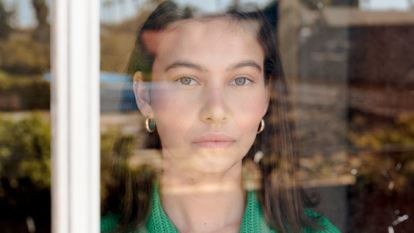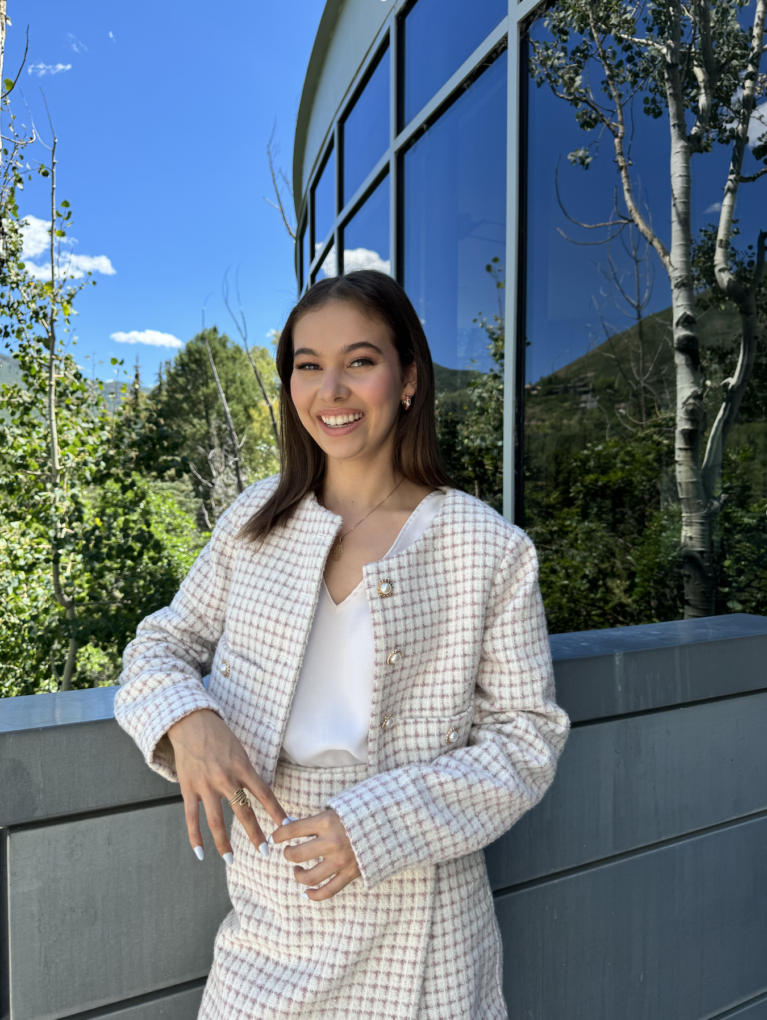Free to Breathe
Listen to the story
All photos by Garrett Grove
As a child, I never felt safe to breathe. Every day, my mom and I kept our windows shut tight in our South Los Angeles apartment, making sure no breeze could seep through. Outside, the air was thick with the smell of rotten eggs, masked by chemical scents of cherries, guava, citrus and chocolate.
Across the street from my home, in the heart of the City of Angels, was an underground oil-well operation. Gated off and unassuming to the naked eye, my industrial neighbor was a silent, toxic monster that poisoned not just me but my surrounding community.
Growing up within 30 feet of oil drilling robbed me of my childhood and cast a long shadow over my future. I may not know all the legal or scientific jargon of the injustices at play. But I know my story, and I understand how the fossil fuel industry has irrevocably altered my life.

Active pump jacks in South LA’s Inglewood Oil Field, one of the largest urban oil fields in the United States. Over 1 million Angelenos live within 5 miles of the massive site.
I was 9 when the drilling started. Within a few months, I began suffering nosebleeds so severe that I had to sleep in a chair to avoid choking on my blood. At 10, heart palpitations and body spasms began, and I wore a heart monitor for weeks while my mother carried my frail body from place to place. Meanwhile, all three generations in my family developed asthma.
In California alone, nearly 3 million residents share the alarming reality of living within a couple thousand feet of an active oil or gas well, and the Inglewood Oil Field in Los Angeles is one of the largest urban oil fields in the nation. Communities like mine are often referred to as “sacrifice zones,” places where low-income families and people of color live close to polluting industries, exposing us to significantly more air pollution than our white and affluent counterparts. This exposure is proven to elevate risks for chronic nausea, nosebleeds, upper respiratory illnesses and cancer in Black and Latino neighborhoods. That is environmental racism.
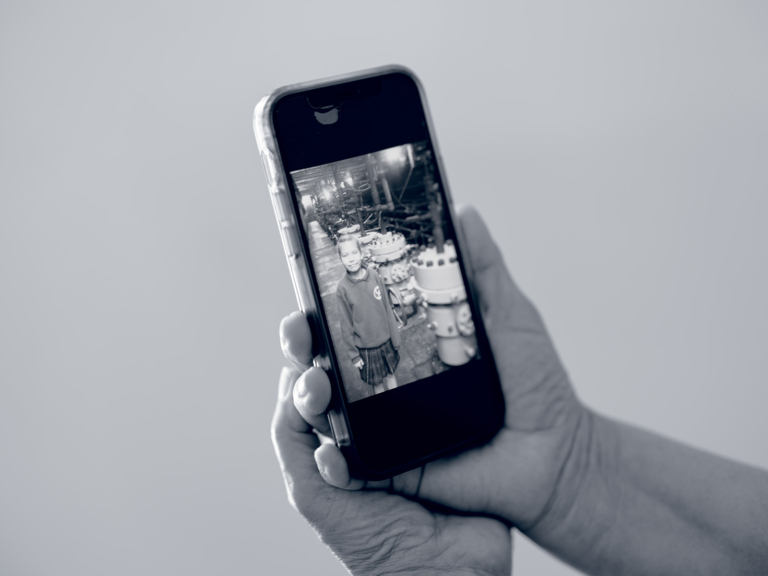
Cobo’s mother, Monic Uriarte, holds a photo of her then 10-year-old daughter standing next to the AllenCo underground oil wells.
When I was a kid, I didn’t know any of these terms or statistics. But I loved my community—and I sensed we were under attack. So, I stood up and fought back.
At 9, I began door-knocking with my mom, asking our neighbors if they had symptoms similar to ours. The consensus was clear: Dozens of families were healthy before the oil wells started operating. Now, kids I knew were holed up in emergency rooms, missing out on entire childhoods.
There’s one day I’ll never forget. I was walking home from Catholic school in fourth grade when my mom and I noticed the gates to the drilling site left wide open. We looked at each other in disbelief, eagerly rushed inside and stumbled into an oil worker, who warmly greeted us and offered a tour. Within minutes, we were crawling down a narrow ladder into a dark tunnel. I heard a low buzzing sound and then, in plain sight, a row of 21 active oil wells appeared before me. The proud worker told us the wells operated under such immense pressure that he and his colleagues had to manually release special valves every 10 to 15 minutes to prevent a potential explosion.
Then, he left me with a souvenir—a jar of oil and water—and told me to remember that “oil and water never mix.”

The souvenir (a jar of oil and water) gifted to 10-year-old Cobo by an oil worker at the AllenCo drilling site over a decade ago.
This visit left me haunted. I had just learned that my community could be gone in a matter of seconds—but I felt like nobody cared. In the following months, I would watch the clock every 15 minutes, hold my breath and whisper to myself, “I hope they open the valves.” With each moment that passed, I was thankful when the workers didn’t forget about us—but more determined than ever to shut down the wells.
I went on to organize thousands of people in my neighborhood: students, parents, grandparents, teachers, health promoters and fellow members of the Catholic Church. Together, we placed complaints with the South Coast Air Quality Management District, attended town hall meetings, spoke at city hall hearings and collected our own air samples.
As a community, we found ourselves fighting against three monsters: the oil industry, the Catholic Archdiocese of Los Angeles that leased the land where the oil well operated, and a broken regulatory system that constantly sidelines people of color. It fell upon us to become the experts and defend ourselves.
Within a few years of my first symptoms, I was a full-time activist, missing school dances, traveling to conferences, and speaking about environmental racism to end urban oil extraction—all while navigating my health. My journey to activism had begun as a fight for survival. Now, it had evolved into something much greater than me: ensuring no person had to endure a health crisis at the hands of the fossil fuel industry.
As I traveled the state, I met more and more communities that looked like mine, with similar stories. Together, we joined forces in citywide and statewide environmental justice coalitions and, collectively, our voices got stronger. In 2013, the oil company across the street finally shut down their drilling operations; in 2020, the company was ordered to plug and decommission the wells; and by 2022, the city of LA instated a ban on new oil and gas wells, and a phaseout of existing ones within 20 years.
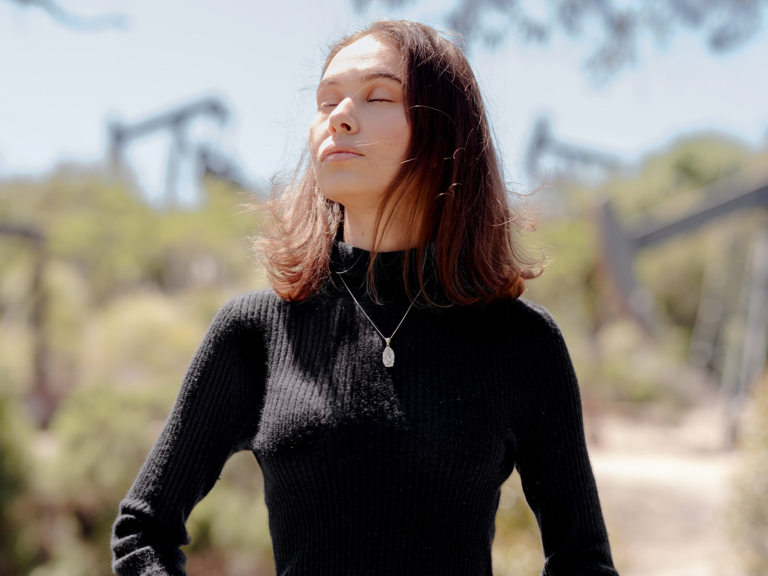
Cobo in front of an urban oil field lining Kenneth Hahn State Recreation Area—a 387-acre park where many generations of Cobo’s family have visited over the decades.
As I write this in 2024, a new California law, SB-1137, is in effect to create a 3,200-foot buffer zone between new wells and places where people live, work and play—and it will require stronger safety regulations for existing ones.
While I celebrate these monumental wins, I also know that the same burning of fossil fuels driving the climate crisis continues to poison people every day, with air pollution from oil and gas emissions resulting in about 1 in 5 deaths worldwide. And the scars run deep for survivors like me.
At the start of the COVID-19 pandemic, a month after my 19th birthday, I received a dreaded diagnosis: “You have cancer.” A rare and aggressive form of stage 2 reproductive cancer, it forced me to choose between my reproductive system and my life. After three surgeries, eight minor procedures, three rounds of chemotherapy and six weeks of radiation, I was declared cancer-free.
Laws like SB-1137 protect innocent lives and mean the difference between life and death for kids like me. But corporations will do everything they can to block these laws. In the past two years, Big Oil alone spent $60 million to stop SB-1137. Communities that are viewed by outsiders as silenced, as disposable, as invisible—we drive historic climate action, powered by our unwavering commitment to our basic human right to breathe clean air.
We’ll continue to fight for our lives but we can’t do it alone. We need politicians who listen to us and help defend us from air pollution and the growing threats from the climate crisis. We, the people, vote them in, and we, the people, can vote them out.
This November, no matter where you fill out your ballot, I urge you to think of the innocent lives directly affected by the climate crisis. Think of the 9-year-old girl who sees oil rigs from her window, the 80-year-old grandmother struggling with newly diagnosed asthma, or the teenager navigating high school and a cancer diagnosis.
We’re not so different from you. We all breathe the same air. We all live on the same planet. Your family might not be at risk today, but they could be tomorrow if we don’t hold the fossil fuel industry accountable. The way forward is clear: Vote for climate action this November. Don’t wait until your life is at risk.
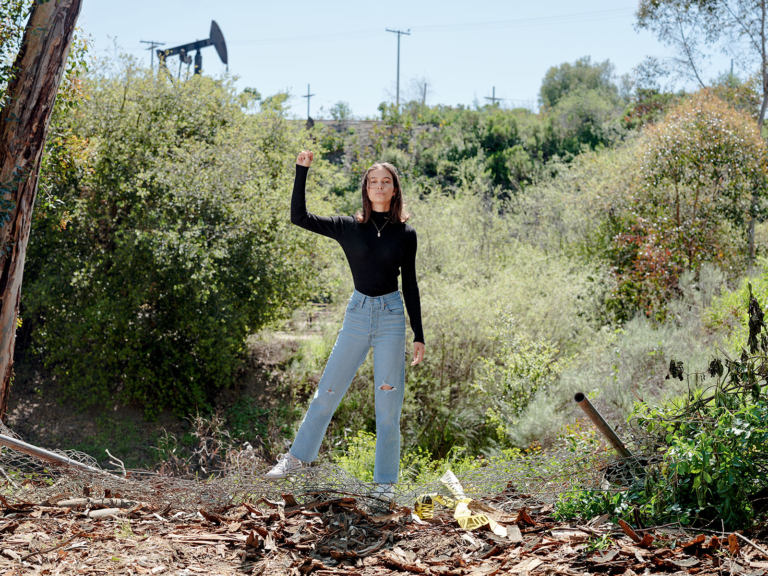
Despite her cancer diagnosis, Cobo has continued to organize with frontline communities and political leaders to protect SB-1137.
